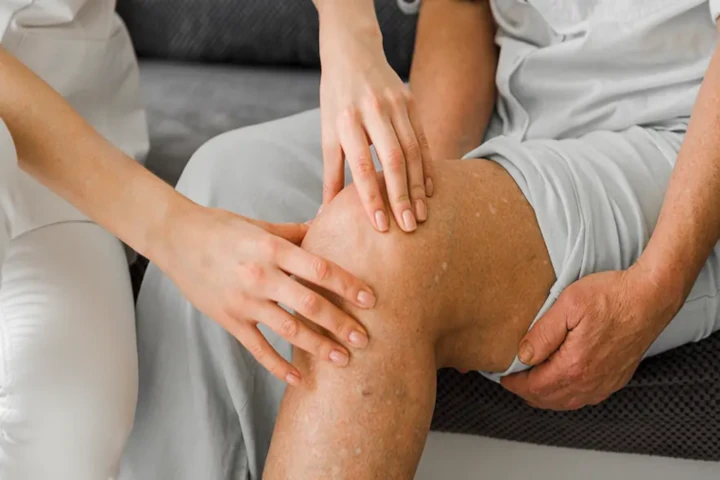Are you struggling with hip pain that just won’t go away? Many people assume hip pain is just a natural part of aging or the result of temporary strain, but ignoring it can lead to more serious issues that impact quality of life. Understanding the right time to seek professional physiotherapy for hip pain treatment is crucial. With the right physiotherapy approach, hip pain can be effectively managed and even eliminated, allowing you to regain mobility, reduce discomfort, and prevent further complications.
Physiotherapy treatment for hip pain offers a non-invasive solution that addresses pain, mobility, and strength, helping individuals return to their daily routines without disruption. Whether it’s an old injury resurfacing, a recent fall, or chronic discomfort, knowing the key indicators for when to seek help can ensure you get timely and effective care. This blog will explore the top signs that signal it’s time to consult a professional and how targeted physiotherapy can make a difference in hip pain recovery.
Table of Contents
Key Indicators You Need Physiotherapy for Hip Pain Treatment
1. Persistent or Recurring Hip Pain
If hip pain becomes a regular part of your life or recurs frequently, it’s time to consider seeking help. Consistent pain, whether sharp or dull, can indicate underlying issues like tendonitis, bursitis, or early arthritis. Hip pain therapists can assess these issues, identifying whether physiotherapy treatment for hip pain can provide relief and help address the root cause.

2. Pain with Physical Activity
Hip pain that worsens during physical activities such as running, walking, or climbing stairs is another indicator that physiotherapy may be needed. Hip pain therapists use targeted exercises and stretches to address mobility and strength, allowing you to enjoy your favorite activities without discomfort.
3. Limited Range of Motion
If you experience stiffness or difficulty moving your hip joint through its full range, this limitation can reduce your quality of life and lead to further complications. Physiotherapy for hip pain can include manual therapy and mobility exercises to help restore joint flexibility and ease everyday movement.
4. Radiating Pain into the Thigh or Lower Back
When hip pain radiates to surrounding areas, such as the thigh, buttocks, or lower back, it can signal issues with muscles, tendons, or nerves. A physiotherapist specializing in hip pain treatment can work to address these connected pain points and implement a holistic treatment plan to relieve discomfort in both the hip and surrounding areas.
5. Discomfort in Daily Activities
If daily routines, like sitting down or standing up, are causing hip pain, this discomfort can interfere with essential tasks. Physiotherapy treatment for hip pain can provide personalized exercises to strengthen muscles, improve balance, and support pain-free movement.
6. Pain After an Injury
Injuries to the hip, such as fractures, strains, or dislocations, may require professional rehabilitation to fully heal. A tailored physiotherapy plan from hip pain therapists can promote recovery and help prevent chronic pain from developing in the future.
Benefits of Physiotherapy for Hip Pain Treatment
Seeking physiotherapy for hip pain provides numerous benefits that extend beyond simple pain relief. Here are the key advantages:
- Pain Relief: Through targeted exercises, manual therapy, and modalities like heat or ultrasound, physiotherapy can significantly reduce both acute and chronic hip pain, addressing the underlying causes rather than just masking the symptoms.
- Improved Mobility and Flexibility: Physiotherapy focuses on improving joint flexibility and range of motion, allowing for smoother and more natural movement. Restoring mobility in the hip joint also reduces the risk of further injury or strain on other areas, such as the lower back and knees.
- Strengthening of Supporting Muscles: By strengthening the muscles around the hip joint, physiotherapy reduces strain on the hip itself. Stronger hip muscles provide better stability and support, which is essential for activities like walking, climbing stairs, or lifting.
- Enhanced Balance and Stability: Poor balance often accompanies hip pain due to muscle weakness or joint stiffness. Physiotherapy works on improving core stability and balance, reducing the likelihood of falls or accidents and allowing for more confident movement.
- Injury Prevention and Long-Term Health: Regular physiotherapy helps prevent future injuries by correcting movement patterns, improving posture, and reinforcing muscle strength around the hip and core. This proactive approach supports long-term hip health and minimizes the likelihood of chronic pain.
- Non-Invasive, Drug-Free Treatment: As a natural, non-invasive approach, physiotherapy avoids the potential side effects of medication or surgery. It empowers patients to manage their pain and health with personalized exercises and lifestyle modifications, contributing to overall wellness and self-sufficiency in managing hip health.
- Enhanced Quality of Life: With reduced pain and improved function, patients often report a significant increase in their quality of life. Everyday activities become more manageable, and the confidence to engage in hobbies or exercise can lead to better mental and emotional health as well.
Personalized Treatment at Sai Healthcare Foundation for Lasting Relief
At Sai Healthcare Foundation, our approach to treating hip conditions is thorough and customized. We start with an in-depth assessment to identify the specific cause of the hip pain. Following this evaluation, we create a personalized treatment plan that may include manual therapy to improve joint mobility, targeted exercises to strengthen the hip muscles, and heat therapy to reduce muscle tension. Additionally, we utilize ultrasound therapy and hydrotherapy to support healing and alleviate discomfort, providing effective hip pain relief. Our goal is to restore optimal function to the hip joint, allowing patients to return to their daily activities with confidence and ease.
For individuals struggling with hip pain, early intervention and professional care are essential. Contact our team of dedicated hip pain therapists to start your journey toward recovery and a pain-free life.


